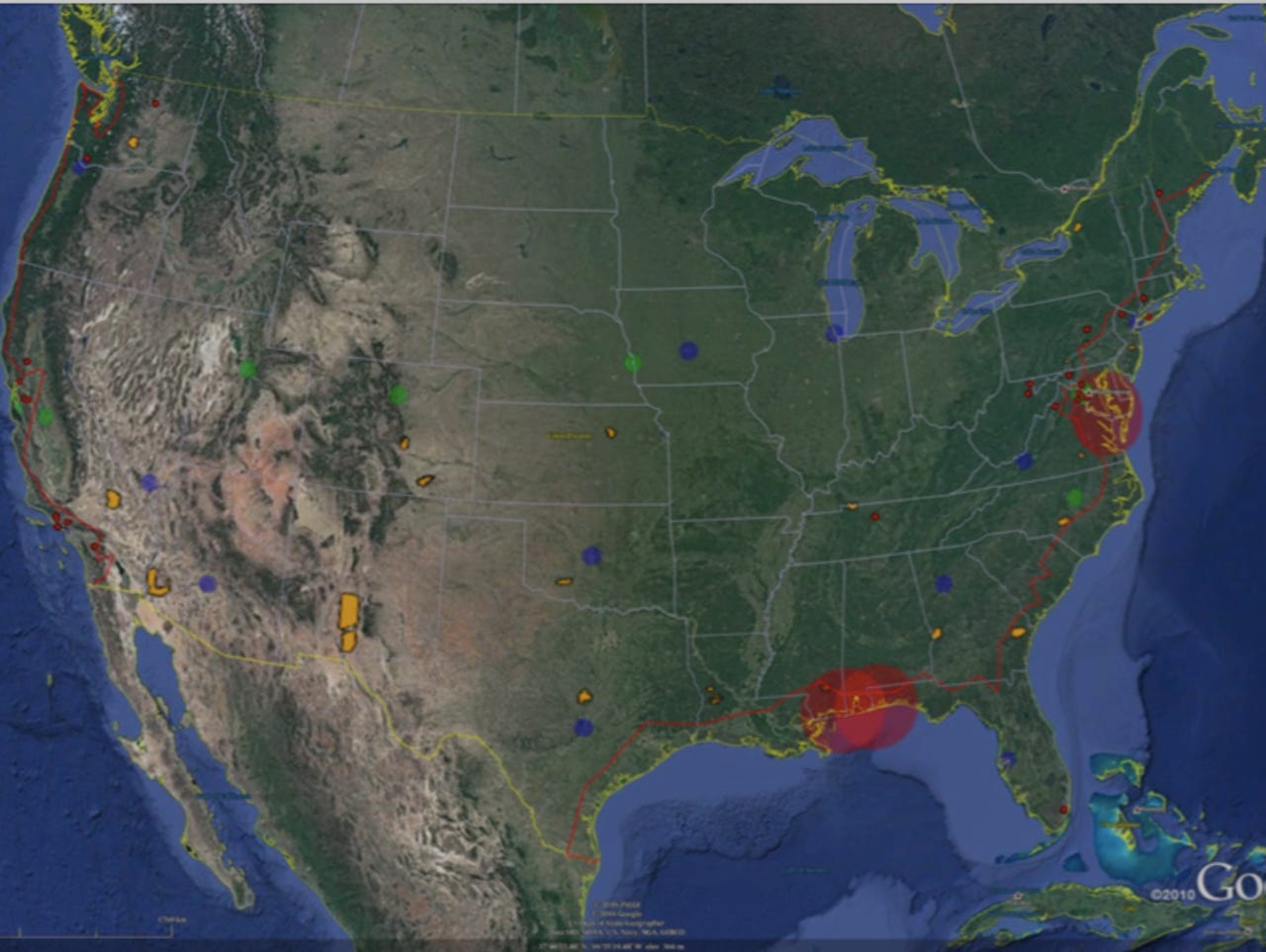Google urgently wants to test superfast wireless broadband in 24 US cities


Blue dots indicate where Google wants to test 3.5GHz wireless tech.
Google is urgently preparing a new round of secretive tests of wireless broadband delivery in the US, where it's angling to sidestep incumbent telecom operators.
In a new filing with the Federal Communications Commission (FCC), Google has sought a special license to test wireless broadband technologies in the 3.5GHz band across 24 US locations for two years.
Google said the experiments would support the development of technologies for the Citizens Broadband Radio Service (CBRS), which operates in that band and will be used as a test bed for spectrum sharing.
Execs from Google Access, the unit responsible for Google Fiber, have been exploring fixed wireless broadband for low-density areas where costs prohibit laying fiber.
Google has requested the authorization be "granted expeditiously" for tests between 3.4GHz and 3.8GHz, the space that has been made available for small-cell spectrum sharing by CBRS devices.
It notes that existing licenses for ongoing tests in this band at several locations are set to expire in December. The 24 locations in the new application are spread across cities in California, Colorado, Kansas, Nebraska, North Carolina, Utah, and Virginia.
Google plans to test base stations as well as end-user devices with approved staff and contractors.
Google also intends to use the test to improve its Spectrum Access System (SAS) database, which may eventually be used to manage spectrum sharing in the 3.5GHz band. Google had previously developed the SAS database for TV white-space spectrum sharing.
News of the application followed a report from the San Jose Mercury News that Google's Fiber rollout has been delayed in some cities, including San Jose where a plan to lay fiber was abruptly brought to halt last month.
With its recent acquisition of the small ISP Webpass, Google does have another option now to roll-out high-speed broadband without necessarily digging up streetscapes to lay fiber cable.
The Webpass technology is suited to high-density areas with an abundance of apartment blocks, whereas small cell networks in the 3.5GHz range could also be used to provide fixed wireless broadband in rural areas.
Read more on this story
- Google moves ahead with tests in unused 3.5GHz spectrum
- Google planning to get into the mobile data business with project 'Nova'
- AT&T goes to war with Google Fiber in Louisville: Why Ma Bell could win and what it would mean (TechRepublic)
- Google Fiber buys Webpass to speed up broadband deployment in cities (CNET)